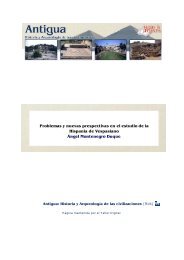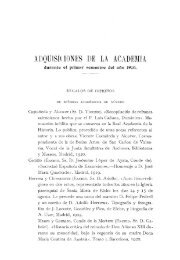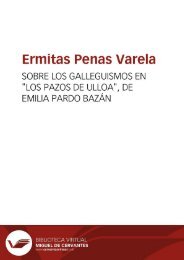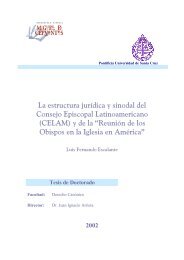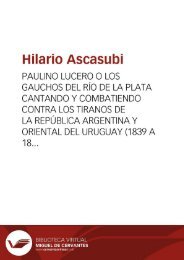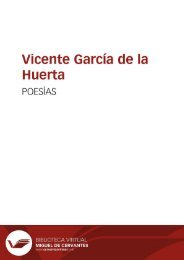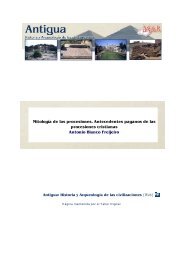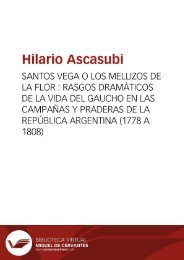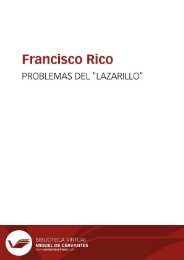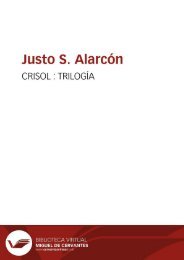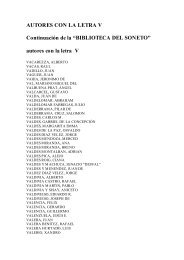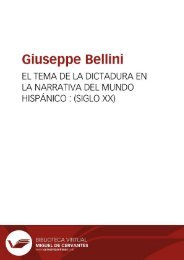You also want an ePaper? Increase the reach of your titles
YUMPU automatically turns print PDFs into web optimized ePapers that Google loves.
Anales galdosianos [Publicaciones periódicas]. Año XII, 1977<br />
Cuban uprising in 1895 signalled the disaster of 1898 221 . Both the economic infrastructure and the<br />
political superstructure of the Restoration regime were falling apart. But in the face of this weakness<br />
on the part of the bourgeoisie, the working class was unable to offer an alternative. Its movement was<br />
deeply divided between anarchists and socialists and had experienced considerable repression since<br />
1884. Without trying to argue a one to one relationship between economic and political phenomena on<br />
one hand, and artistic creations such as novels on the other, I think we can see how the virtual collapse<br />
of the Restoration, the lack of any viable alternative to it, and the pessimism that this situation imbued<br />
in all sectors of society, were important social factors which contributed to <strong>Galdós</strong>'s turn away from<br />
historical process in search of ahistorical solutions.<br />
Nevertheless this shift does not mean that the historical is eliminated from these novels. Rather, as<br />
we shall see in this study of Ángel Guerra , the oscillation continues. In spite of <strong>Galdós</strong>'s efforts to<br />
find a spiritual alternative, materiality continues to permeate his search. The emphasis may now be on<br />
the spiritual, but the historical problems refuse to go away. The spiritual and the historical continue<br />
to form a duality which is expressed primarily in contradictions in the development of Ángel as a<br />
character and in the proposed resolutions the novel offers.<br />
Ángel Guerra is <strong>Galdós</strong>'s first effort to understand the evangelical vision of charity in the terms<br />
of the modem world. The question which is posed here is, in its broadest terms: how can a spiritual<br />
factor predominate in an increasingly urbanized society whose way of life is based on the steam<br />
engine and the exchange of commodities? The artistic problems which are posed stem from a historical<br />
base, for <strong>Galdós</strong> understood that the New Testament concept of charity was enunciated in a world far<br />
less complicated and skeptical than nineteenth-century bourgeois society. Thus the spiritual-historical<br />
duality is present in the basic hypothesis of the novel.<br />
In the working out of this hypothesis, the dynamic developed in Ángel Guerra is the opposite<br />
of Fortunata y Jacinta . In the latter work, Fortunata is an outsider who seeks to be integrated into<br />
bourgeois society (although on her own terms), and the renovation of society is dependent on the<br />
success of her efforts. In the former, on the other hand, Ángel is a bourgeois who rejects the values and<br />
institutions of his class. He strives continually to achieve a radical break with society, first through<br />
violent social revolution and then through the establishment of a messianic religious order which will<br />
function as an alternative external to the status quo. Whereas in Fortunata y Jacinta the renovation<br />
221 See particularly the chapter «The Restoration and the Disaster, 1874-1898» in Raymond Carr,<br />
Spain 1808-1939 , (Oxford: Oxford. U. Press, 1966.)<br />
163




